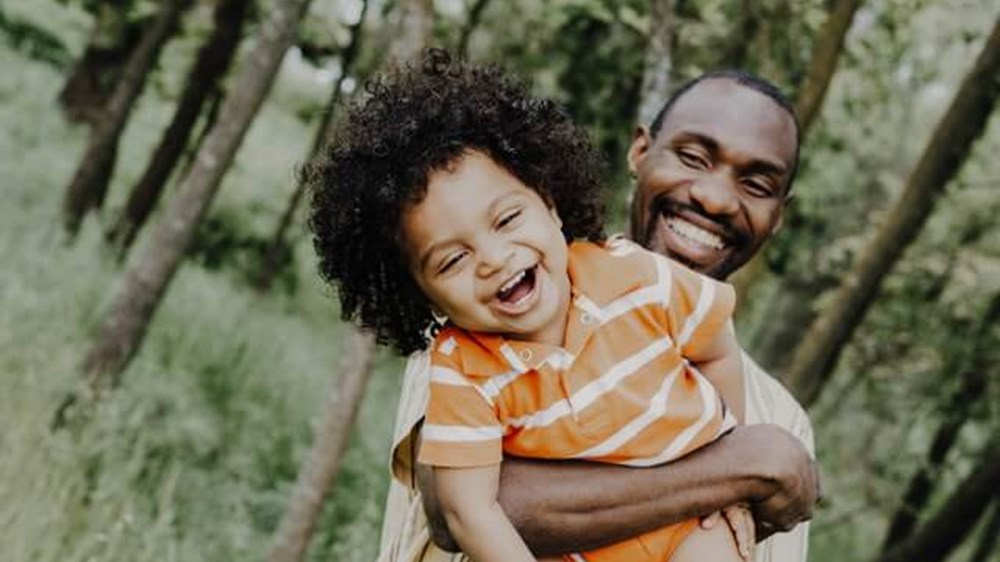Whether you’re planning on having your first baby, want to know how much adding another child to your family would cost, or you simply want a ballpark figure on how much being a parent can be – knowing how much a child can cost could be pretty useful!
But you may have noticed that children aren’t born with price tags. There’s a reason for that, and it’s not just because they’re born instead of bought. There are so many variables when it comes to raising a child that it’s almost impossible to know for sure how much it’ll end up costing you.
That’s not to say that you can’t get a rough idea of what you could expect though. There’s been plenty of research done into it, and the general consensus is that the cost of raising a child is increasing over time – and it’s not exactly cheap in the first place.
Cost of raising a child: The big number
If you’re umming and ahhing over having children because you’re not sure if you can afford it, then you’ll probably have seen this a big scary number thrown at you. It’s often used as a headline figure, or banded about by some friend or family member when you announce you’re having a child, but it’s a figure that’s been thoroughly researched by the Child Poverty Action Group [1], so it’s worth taking into consideration.
According to them, having a child in the UK will cost you:
- £157,562 for a family with two parents or guardians
- £208,735 for a single-parent family
That's the ‘big ticket’ prices of raising a child, and it considers everything from food to housing and childcare. However, £69,621 is said to be the very basic cost of raising a child for a couple compared to £113,102 for a single-parent. These calculations doesn’t factor in luxuries like trips abroad or lots of birthday and Christmas presents, or if your child picks up an expensive hobby at an early age that you'll need to fund.
Remember, this is an average.
Obviously, this is not a small amount of money. But it’s also an average – some areas of the UK may be more expensive (such as London) while others are cheaper. It’ll also depend on things like your lifestyle and salary, as if you’re used to a certain standard of living then you’ll likely carry this on with your child – for example, regularly going out for dinner or to the cinema, or taking long-haul holidays abroad.
These figures are also averages across the first and second child – so it may be more expensive if you just have the one!
Thinking about it logically, a second or third child is likely to be cheaper thanks to things like hand-me-downs, as you’ll already have things like baby seats and prams, and you’ll know which things not to buy as you never used them with the first child.
Having a girl costs more
This feels like a really outdated thing to say, but research has shown that it costs more to raise a girl than it does a boy. Research from Life Insurance comparison site, Reassured, actually shows that girls could cost over £29,000 more to raise than boys! [2]
Children cost more at different stages of their life
It makes sense when you think about it, but your children won’t always cost you the same amount – in fact, when they’re all grown up they might even pay for some things you want!
Newborn
Whether you think newborns are the cutest thing ever or that all babies look the same at that age, there’s no denying that the first few months of your baby’s life are going to be life-changing.
Say goodbye to sleep, peace and quiet, and being able to leave the house in under 30 minutes!
But it’s probably worth financially preparing to have a baby, as some sources estimate that you could find yourself spending anywhere between £6,000 and £12,000 in their first year [3]. This is because of things like nappies, clothing, feeding equipment, and clothes and furniture.
To add to that, there’s also the cost of cots, prams, car seats, Moses baskets, and baby monitors, which can easily run up into the thousands.
Pre-3
One of the biggest costs of having young children comes down to childcare – especially if you plan on sending your child to nursery before they are three years old.
Why three? Because that’s when free pre-school educations starts in the UK. Before that, you’ll have to pay for it out of your own pocket, and it’s not cheap. According to the Money Advice Service [4], the average cost of childcare in 2022 came out as:
- £138.70 a week for part-time care (25 hours)
- £269.86 a week for full-time (50 hours)
This is just an average, and due to inflation costs may have increased since then. Not only that, but where you live in the UK may also have an impact on how much you'd expect to pay.
Once they’re in free education, you shouldn’t have to spend quite so much, which means you could tuck it away into a Junior ISA to help pay for their university fees or anything else they may want in future (if they think university is worth the cost, that is!).
A Junior ISA is a savings or investment account that lets you put money away for your little one from the day they are born. The money is belongs to your child and is tucked away until their 18th birthday.
The money in this type of account can accrue interest (in the case of a Junior Cash ISA) or profits from investments (if you choose a Junior Stocks and Shares ISA, like the one we offer), and your child won't pay tax on any gains their money makes.
As of the 2025/26 tax year, you can pay in up to £9,000, though this allowance may change in future.
3 to 12
Being in free education may help reduce some of your daily costs, but there’s still plenty of expenses involved in raising a toddler to a child. You’ve got to think about school uniforms, toys, playgroups, family-friendly holidays, afterschool clubs, and so much more!
It’s worth saying that this is the point where you probably have the most control over how much you spend on your children. Their needs are relatively simple, and you can find lots of ways to do fun activities on the cheap or even for free. This could be a great time to save for your children, as you should be able to have more control over how much you spend on them.
13 to 19
Teenagers. They want independence, but they also want you to be their taxi – it’s a conflicting time for them. It’s also the time they start developing social lives and pick up different hobbies and activities – and during these years they’re likely to start driving too. All of this adds up.
Plus, there's still things like household costs (such as food shopping) and utility costs to think about. And if you’ve ever lived with a teenager, then you’ll know that they eat everything and spend far too long in the bathroom.
20 to 25
You may think, “they’re 20 now, they can’t still be costing me money?”. But that’s where you’re wrong!
We did some research into how parents are planning to save for their children in 2022, and we found that 47% expect to put money towards their first car, with the majority (29%) saying that they planned to give them between £1,000 and £2,000.
Additionally, 44% said they wanted to give their child financial support when buying their first home, and 36% planned to contribute to the cost of their future wedding.
And don't forget things like family holidays and birthday and Christmas presents too!
You have the ability to control your spending
Children don’t have to be expensive. Yes, there are lots of costs associated with having children but there also are plenty of things that you can do to reduce this cost too.
For a start, budgeting is important. Not only will it let you know exactly how much you’ve been spending on your children, but you’ll also be able to easily spot where you’ve overspent or see where you could save money in future.
And when it comes to the things you buy, it doesn’t have to be new. Second-hand purchases are great – not only are they more eco-friendly, but they can also be cheaper too. As children grow out of things so quickly, it may be worth having a quick look around the popular selling sites to see if you can pick up a bargain.
Another thing you can do is get help from your friends and family. Chances are, you’ll have people who want to help – that could be grandparents wanting to save for your children’s future, friends looking to lend a hand, or even colleagues or neighbours wanting to give your child something special.
Why not look for something like a Junior ISA account that allows others to pay in too? This could be a great way to take the pressure off building up your child’s finances.
Finally, talk to your children about money. It may not be very British to talk about money, but it’s incredibly important for them to understand how it all works. If you’re not sure where to start, then check out our blog on why financial education matters.
Can I afford to have a child?
Although a large number of people cite money as a reason for why they aren’t having children, it shouldn’t put you off having them if you really want them. If you’re already researching the cost of having a child, then you’re working along the right lines, and here are some things you could do to make things easier for yourself:
- Talk about money – with your children, with your friends, your parents, whoever. Being able to have an open conversation about money could help you avoid getting into hardship.
- Start saving – it’s always a good idea to have an emergency fund and having a child could increase the importance of this as you never know what you might need money for.
- Plan ahead – you now know the rough cost of raising a child, so it could be worth setting yourself goals to help cover these costs.
- Budget – having a child is only as expensive as you make it. There’s plenty of things you can do to keep costs down and still give your child all the wonderful experiences you want them to have.
- Invest early – a Stocks & Shares Junior ISA gives you a chance to invest tax-free for your child, and the earlier you start the more value you could get from compounding – which is when the profits on their investments are reinvested and able to make profits of their own.
With investing, your capital is at risk, so the value of your investments can go down as well as up, which means you could get back less than you initially invested.
Wealthify does not provide advice. If you’re not sure whether investing is right for you, please speak to a financial adviser.



